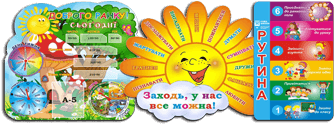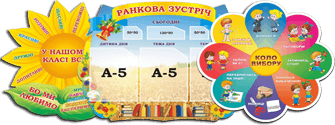Розробка уроку англійської мови на тему “Відносини між людьми”
Автор: вчитель англійської мови Трофимчук Світлана Вікторівна
 Theme: Relationships: Problem and Conflict Solving
Theme: Relationships: Problem and Conflict Solving
Target Age: 14-15 years
Focus: 1. Apply vocabulary and grammar knowledge.
- Develop skills and abilities in solving problems and finding the ways out
Learning Outcomes: By the end of the lesson the students
- will be able to use the vocabulary in their speech
- Will have further developed their speaking practice skills
- Will have further developed their knowledge on Civics
Time required: 45 minutes
Materials required: multi-media equipment
Procedure
I. Introduction
Warming Up
a) ( 2 pictures on the board: one with the description of nature; the other with a group of people doing ) The student’s task is to explain the differences between these pictures while describing them and to answer the question: What picture gives us more information and why? Supposed answer: the second picture gives us more information because we can speak about people relationships)

b) T: We have come to the theme of our lesson ”Relationships’’. What is your understanding of the word ‘’relationships’’. What are your associations? What situations can this word be used?
Students’ answers
T: ( on the board the explanation appears) The dictionary defines the word ‘’relationships’’ as
II. Practice
Vocabulary work
a) T: There are a lot of adjectives to describe our relationships. Now, I would like you to write at least one adjective to each letter of the word ‘’relationships’’
e.g. r – romantic
The same task is with the verbs which go with the noun ‘’relationships’’
e.g. r – reveal
reveal/recognize – R – romantic
end – E – e-mail/exploring
long for/lengthen – L – long-distance
mire/avoid – A – active/awe-inspiring
test – T – tragic
influence – I – interpersonal/independent
overestimate – O – on-line
negotiate – N – natural/negative/nervous
support – S – serious
ideal/have – H – human/healthy/helpful
improve – I – ideal/intimate
provide – P – professional/positive/personal
search for – S – safe/sensible
b) T: At our today’s lesson we’ll speak about the relationships with different people I am sure you’ll agree with me that these relationships are the most difficult. Try to explain why?
Students’ answers
c) T: The most important reason of our relationships with people is that all people are different. I have prepared the following activities for you. Your task is to match the idiom which describe different people with their explanation. Here are the idioms.
T: Well done. Now tell me whether you would like to have any relationships with these people and in what situations. You can describe both positive and negative sides of having relationships with such people.
d) T: At the risk of repeating myself, I would like to remind you of the fact that it is very difficult to have any relationships with people especially if you are a teenager. This is the period of life when you are not children but also not adults. The following activity will develop this idea. You are to put each of the following words in its place in the passage below, but at first give the explanation of these words:

Childhood and Adolescence
Children live in their own world, from which ______(1) are largely excluded. The ______(2) world is strange and exciting to them. They have _____(3) of success, adventure, romance and fame. They _____(4) their big brothers and sisters, pop-singers or film stars. _____(5) such as stamp-collecting, music or dancing are important to them. Children, especially when they are in their _____(6), go through a physical and emotional _____(7) which can be frightening. Their characters also begin to develop. Some adolescents are ____(8) and keep themselves to themselves, while others are _____(9) and like to share their thoughts and form _____(10) with other people. It is a wonderful, terrible time.
- Speaking Activity (Presentation of the dialogues)
T: As you are the students of the ninth form, you are not only to discuss but also to analise your relationships with different people. What relationships bring you both problems and pleasant moments.
Parents Teachers Friends
T: Your home assignment for today was to make up the dialogues to illustrate both positive and negative sides of your relationships with your parents, teachers and friends. ( One of the students is given the task to listen to these dialogues and to summarise everything positive, the other one – everything negative.)
- Team Work
All the students are divided into 3 groups. 3 pictures appear on the board: the first one shows the relationships between neighbours, the second one – the problem of bullying, the third one – the relationships between twins. The students are to work in groups in order to give the full information as to these problems, discuss everything positive and negative and ways out of the situations giving some pieces of advice. The students answer the following questions: What relationships do these pictures illustrate? Are there any problems in the relationships between these people? What is positive?
- Solving everyday problems and conflicts.
The students are given cards with tasks: to solve conflict situations which they may easily witness in everyday life and are given 2 minutes to solve them. The representatives of each group present the situations and best solutions.
Situation 1
Mother brings home one orange. She wants her son and daughter to share it. But both insisit on the whole orange. Both feel hurt. What should be done?
Ways to solve the conflict:
- To ignore the protests of the elder daughter and to give the orange to the son because he is younger.
- To give the orange to the daughter because she has had “flu” recently and lacks vitamins.
- ……
- ……
Situation 2
A student studies at day time and works in the evening. He comes home late and turns on very loud rock-music. He also arranges noisy parties. His neighbour is an elderly gentleman, suffering from insomnia. All that noise drives him mad. What should be done?
Ways to solve the conflict:
- The student can look for some flat exchange either for himself or his neighbours.
- The student may invite his neighbour to one of the parties. Maybe the gentleman will like it and they will become friends.
- …….
- ……
- Students’ survey
The students are to prepare the survey beforehand. They are divided into 3 groups. Each group has the same question to ask parents, teachers and their friends: Do ideal relationships exist? If yes, what are they based on? If not, what is it necessary to do to avoid conflicts? They present their results at the lesson and compare the answers.
- Making conclusions. Assessment. Setting homework.
Assessment is held with the help the so-called “ Tree of Knowledge”. A copy of this tree is given to each student at the end of the lesson and each student is asked to find himself/herself on that tree before studying the topic and at the end of the lesson. Volunteers are asked to explain their reasons, giving the numbers.
Home Assignment: To make up conflict situations for other students to solve.













Мені розробка сподобалась! Розрахована на високий рівень володіння мовою, вочевидь, для учнів шкіл з поглибленим вивченням англійської. Warm up, який одразу активізує логічне мислення, чудова робота з ідіомами, комунікативність завдань, високий темп уроку, різноманітні види роботи – вцілому, розробка дуже вдала. Мої вітання авторці.
Вибрана тема для учнів 9 класу є актуальною і необхідною у житті. + завдання мають комунікативну спрямованість, проте на мою думку не вистачає диференційованого підходу. Усі завдання вимагають високого рівня знань.
Вирішення конфліктної ситуації допоможе учням і в інших ситуаціях.З допомогою конфлікту вчитель збільшив інтелектуальну напруженість класу,спонукав міркувати логічно.Дякую за корисний конспект уроку.
Використані стимулюючі форми роботи, особливо цікавим, на мою думку, є завдання з ідіомами. Подобається також те, що урок матиме практичну користь для учнів, адже вони навчаться вирішувати конфлікти. Дякую!
Розробка уроку дуже насичена різним матеріалом, сподобалося, що наведені різні ситуації та приклади шляхів вирішення конфлікту. Дякую за цікаву та детальну розробку